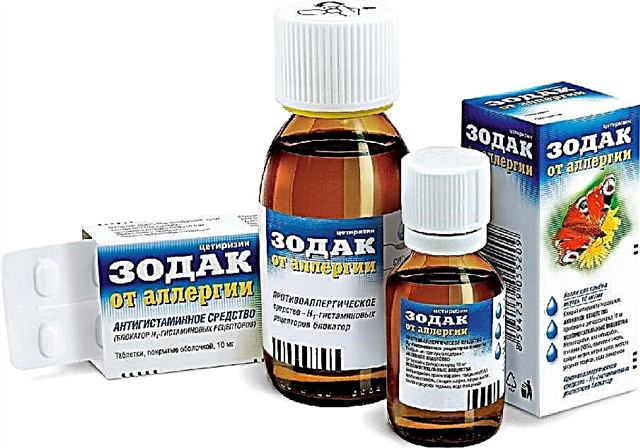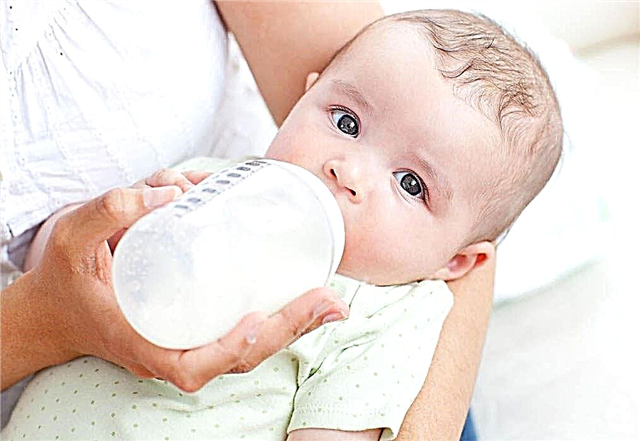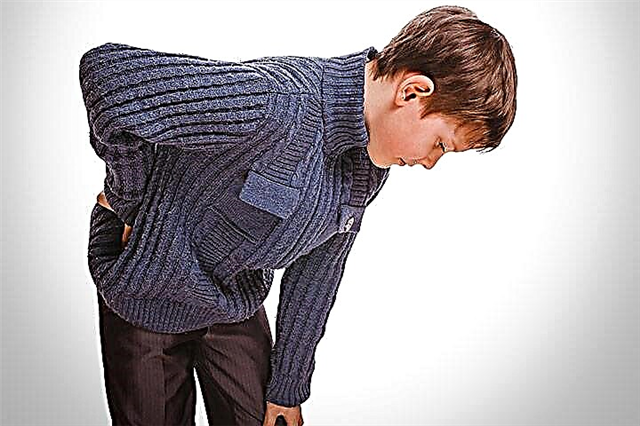
Food poisoning in children under 7 years of age is one of the most common diagnoses by district pediatricians. Every day, every pediatric doctor at his site registers at least three children with suspected food poisoning. Treatment includes diet and medication.

Causes of occurrence
Usually, food poisoning in children occurs after the ingestion of pathogens. They cause severe inflammation. During illness, many toxins are formed, which are very dangerous for the child's body.

The following microorganisms provoke an eating disorder:
- Salmonella. It is the most common cause of eating disorders in children under 5 years of age. Can enter the body through dirty hands. Very often, children become infected in the kindergarten or after the sandbox. Fever and diarrhea quickly develop. The baby suffers from vomiting, from severe abdominal pain.
- Staphylococcus aureus. Usually children get sick at the age of 2-3 years. You can get sick through dirty hands or after eating poorly washed fruits. Rapid development of the disease is characteristic. The child develops severe diarrhea, the temperature can rise to 38-39 degrees. Great thirst arises.
- Streptococcus. It becomes the cause of poisoning much less often. In terms of symptoms, this disease is very similar to infection with staphylococcus. Antibiotics may be required.
- Enterococci and fungi. They often cause poisoning in weakened children, as well as in those who suffer from cancer. May occur in immunocompromised children.
It is not only microorganisms that can cause food poisoning in babies.
Often the reason can be the child's reaction to an unfamiliar, low-quality product (for example, seafood or tropical plants). Beware of giving your child unfamiliar products brought from other countries.
The baby's digestive system is not yet ready to meet them. This can cause acute food poisoning, which will require emergency medical attention.
Any chemical liquid can also cause poisoning. If the child accidentally drank the medicines you left, call the ambulance immediately! In this case, immediate gastric lavage is required.
Signs and symptoms
Often the first sign of administration is nausea, as well as repeated vomiting. The child cries, refuses to eat. Small children can draw their legs to the stomach. They seem to show that it is restless there, the tummy hurts.

When poisoned, the child becomes capricious, may even scream. Increasing symptoms quickly lead to fever. In a few hours it can rise sharply to 39 degrees and higher. With food poisoning in children, symptoms of intoxication occur rapidly. There is a headache, severe weakness. The kid does not play with toys, he is very sleepy.
After a while, the main symptom of food poisoning appears: loose watery stools. If the poisoning has caused the ingress of microorganisms, then the diarrhea becomes debilitating. Sometimes calorie is emitted 5-7 times a day. With a more serious condition of the baby - up to 10 times. In such cases, it is required prescribing medicines and special drinks, which restores salts and vitamins lost with liquid. The body quickly dehydrates after frequent bowel movements. The baby's skin becomes dry, the lips dry out.
If the child lies in the crib, cannot get up, at this stage of the development of the disease, an urgent need to call a pediatrician or an ambulance.

Eating rules after food poisoning
- Meals should be fractional. This will contribute to a better assimilation of food and a faster recovery of the functions of the child's body.
- On the first day after poisoning, it is better to reduce the amount of all food by exactly half. The main thing at this time is to give the baby more liquid. Dr. Komarovsky recommends to "drink" children on the first day of illness. Better to give boiled warm water. Not very sweet fruit drinks or compotes are also suitable. The stronger and more abundant a child's loose stools, the more water he needs to give.
- After the exacerbation subsides (3-5 days), you can gradually return to the child's usual diet.
- All food should be warm, but not scalding. Excessively hot food is not allowed. This can further irritate the inflamed stomach. In the first two days, you can feed the child with broth. Low-fat vegetable soups with meat are allowed from the third day.
- Vegetable and butter oils are limited to 1 teaspoon per day.
- Don't force feed your baby! At high temperatures, children refuse to eat. This is a manifestation of the body's defensive reaction. Don't stuff food into it! There is enough water at this time.
- Prepare food in a gentle way. Better to boil or simmer. In the first days after poisoning, it is better to grind food. So it will be absorbed faster.


What foods can you eat?
For babies, there is only one answer: breast milk. It is an excellent natural source of nutrition, and also contains all the nutrients necessary for the recovery of a child's body.

For older babies, you should limit complementary foods, also giving preference to breast milk. After you feel better, you can expand the diet with familiar complementary foods.
For food poisoning, you can eat the following foods:
- Heat-treated vegetables. Preference is given to beets, carrots, potatoes and cauliflower. Cucumbers and fresh cabbage, tomatoes, as well as all vegetables containing a lot of coarse fiber are strictly prohibited.
- Baked fruits. Better to choose apples or pears. They can be introduced into the diet 3-4 days after poisoning.
- Dried fruits compote. Avoid prunes if you have severe diarrhea.
- Porridge. Preference should be given to buckwheat, oatmeal and rice porridge. They will make the baby well-fed and energetic, he will be able to fight the disease without any problems.
- Lean meat. Choose chicken or turkey. On days 5-6, the addition of veal or rabbit is allowed. It is better to exclude pork
- Dried wheat croutons. Make sure they are not salty.
- Low-fat marine fish. You can make fish balls or dumplings.
- Not very fatty fermented milk products. They usually resolve within a week of onset.
What foods should you not give?
- Immediately after the onset of the disease, cow's milk should be excluded. It significantly speeds up the movement of food through the children's intestines, contributing to increased diarrhea. It can also provoke and enhance fermentation processes in the intestine.
- All spicy vegetables (radish, radish, onion, garlic) are also excluded. They have a scalding effect. Oranges and tangerines are acidic enough and can damage the walls of the gastrointestinal tract.
- Products that increase gas formation should not be given to a child who has suffered a poisoning. These include legumes, grapes, cabbage, plums, black or bran bread.
The diet
- On the first day after food poisoning, it is recommended to limit food. For babies, it is better to exclude 1-2 breastfeeds. Fasting in this case is completely unacceptable! Babies who receive complementary foods should limit fruit and vegetable purees.
- It is better to choose buckwheat porridge diluted with boiled water and mother's milk. For severe diarrhea, you can also opt for rice porridge. It can reduce diarrhea. Vegetable purees are introduced only after 2-3 days. For 3-4 days, you can add meat complementary foods. After a week, fruit and berry purees are added.
- Fermented milk products and curds are introduced last. Pay attention to the shelf life of fermented milk products. Stale yoghurts can easily cause re-food poisoning in a child.
- For children from a year during the acute period of poisoning, all products of the "common table" should be excluded. In the diet, preference is given to buckwheat and rice porridge. You can also make oatmeal by adding milk and water (one to two ratio).
- On the second day, you can prepare low-fat chicken broth with croutons. From vegetables in the first 3 days, mashed boiled carrots, mashed potatoes are recommended.
- All fermented milk products can be included in the baby's diet in 7-10 days. Usually they are prescribed after the exacerbation subsides. They restore the normal intestinal microflora, which is needed to strengthen the child's immunity.
What is the best way to prepare food for your baby?
- For faster recovery from food poisoning, doctors recommend eating food in a fairly liquid or semi-liquid form. Food must be thermally processed. In the first three days, the use of raw vegetables is prohibited. They can worsen diarrhea and symptoms of poisoning.
- All meals are best prepared in a gentle way. They can be stewed, boiled, baked, or steamed. Fried food during the hot season is not allowed. All spicy and acidic foods are also excluded. They can negatively affect the delicate, inflamed lining of the stomach and intestines.
- Dishes should be neutral to taste, and not have a pronounced taste.... Spices are not used. When cooking, dishes are moderately salted. You can add a little sugar to compotes and fruit drinks.
- It is better to boil porridge strongly. In the early days after poisoning, it is recommended that you choose flakes rather than whole grains. They are softer and do not require active chewing. Such food is easily absorbed without scratching the intestinal wall.
- For soups, choose lean meat or fish. If a lot of white foam forms when boiling, be sure to drain it. After cooking, wheat croutons or heavily boiled vegetables and cereals are added to the broth.
- Any meat or fish is best chopped hard. You can rotate the minced meat several times in a meat grinder with a fine grid or use a blender. A piece of wheat bread soaked in water is added to the resulting minced meat, then it is mixed with an egg. It is a great base for making dumplings or soufflés. They are steamed or baked in the oven.


Recommendations for parents
- Parents should remember that if your child suspects food poisoning, call an ambulance as soon as possible. The specialists of the medical team will be able to make an accurate and timely diagnosis. Delay in food poisoning is very dangerous. Intoxication symptoms are growing rapidly. At a body temperature of 39 degrees and above, emergency hospitalization may be required.
- If a child is poisoned by a chemical liquid, doctors will give him an artificial gastric lavage. This will help save your baby's life from dangerous toxins.
- After examining the child by a doctor and establishing a diagnosis, parents should think over the menu for the entire period of treatment. The intake of enterosorbents is often required. It can be activated carbon, Smecta, Enterosgel and much more. Such drugs are prescribed by a doctor.
- If the child has profuse vomiting or diarrhea, the pediatrician may prescribe special treatment. It's called oral rehydration therapy. The child is prescribed medicinal solutions that contain electrolytes, salts, water and glucose. They help to normalize water balance and promote rapid recovery.
- Follow all your doctor's recommendations exactly. Remember to give your baby water every hour. The more often the child suffers from vomiting, diarrhea, the more water you need to give him. This will prevent the onset of dehydration.
- Pay attention to your body temperature. On days 2-3, it must definitely decrease. If you take all the necessary measures, and the temperature does not drop, be sure to call a doctor! It is possible that a correction of treatment is required and even the appointment of antibiotics.
- The diet for food poisoning should be based mainly on which symptom prevailed during the development of the disease: diarrhea, vomiting, or both. All nutrition should have a healing and restorative effect on the damaged organs of the gastrointestinal tract. With food poisoning, it is very important to observe the drinking regime. All these measures in combination will allow you to quickly restore the baby's body after poisoning.
Diet recommendations for poisoning in children are in the next video.



